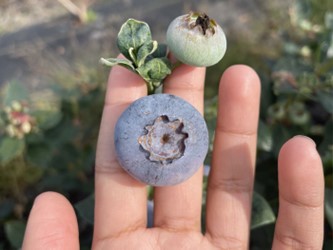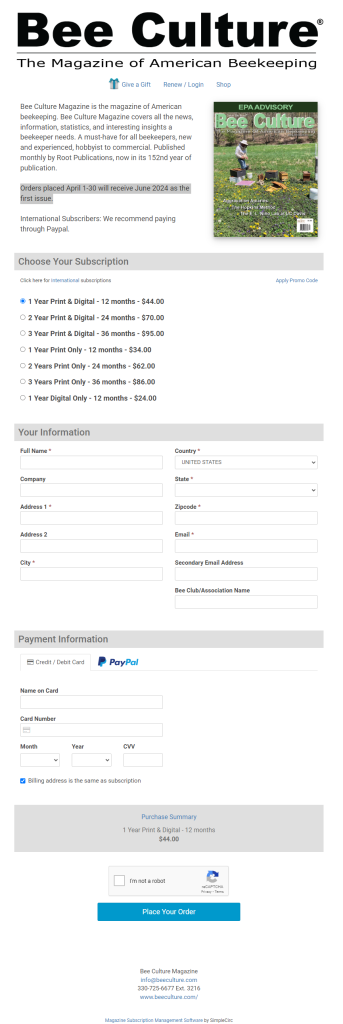WSU Research Shows Beeflow Pollination Program Produces Over 50% Larger Blueberries

LOS ANGELES — Continuing its focus on applying scientific knowledge to pollination optimization and working closely with researchers at the Washington State University (WSU) Department of Horticulture, Beeflow announced the first-round results of research involving Beeflow pollination services for blueberry crops. The study, led by Dr. Lisa Wasko DeVetter, Ph.D., Associate Professor, Small Fruits, was conducted across two farms in northern Washington in 2021, using the Duke variety of blueberries, and showed larger berries on the plants pollinated by Beeflow bees.
The results showed blueberries pollinated by Beeflow were substantially bigger – more than a 50 percent increase in average berry size by gram – than berries pollinated through conventional pollination approaches. Additionally, the research team observed greater foraging by Beeflow bees on suboptimal weather days, when the air temperatures were colder, than non-Beeflow bees, which increased the flight hours of the Beeflow pollination.
“Our goal is to innovate in order to optimize pollination in a way that has not been done before,” said Matias Viel, Beeflow Founder & CEO. “We know how important our work is to increasing biodiversity and helping to build an agriculture system that is more harmonious with nature, so these positive results are monumental to achieving this goal.”
Studies of this nature require researchers to conduct their work over three cycles in order to validate and confirm the results. The next round of field trials, which have been funded by the WA Blueberry Commission, will be conducted by Dr. DeVetter and her team during 2022 focusing on the Liberty variety of blueberry, a notoriously more difficult variety to pollinate.
“As with any new technology and innovation, it is imperative that it be vetted by outside experts in order to prove efficacy and move adoption forward – and we are grateful for Washington State University, the WA Blueberry Commission, and the work of Dr. DeVetter and her team and on this research.”
Beeflow’s work is driven by the knowledge that bees are responsible for pollinating more than 70 percent of food crops around the world, therefore caring for bees and their wellbeing is an important part of the global food chain. Research such as this is vitally important to validate this need and keep the world population with a regular supply of food.
About Beeflow
Beeflow is a biotech startup company that leverages scientific knowledge and technology to improve the impact of ecosystem services in agriculture. Beeflow creates and manages pollination programs for farmers which increase crop yields by up to 60%. The company combines scientific knowledge of crop pollination, bee biology & behavior and chemical ecology with proprietary technologies including molecules that help train bees to pollinate specific crops and a plant-based bee diet that enhances bees’ immune system. This novel approach to pollination management allows growers to produce more with less. Based in California and with operations across the US West Coast, Mexico, Peru and Argentina, Beeflow closed an $8.3M Series A in May 2021 with Ospraie Ag Sciences, Future Ventures, Vectr Ventures, Jeff Wilke (former CEO of Worldwide Consumer at Amazon), SOSV and others. Beeflow’s team of experts includes biologists, ecologists, entomologists, agronomists, and entrepreneurs.








